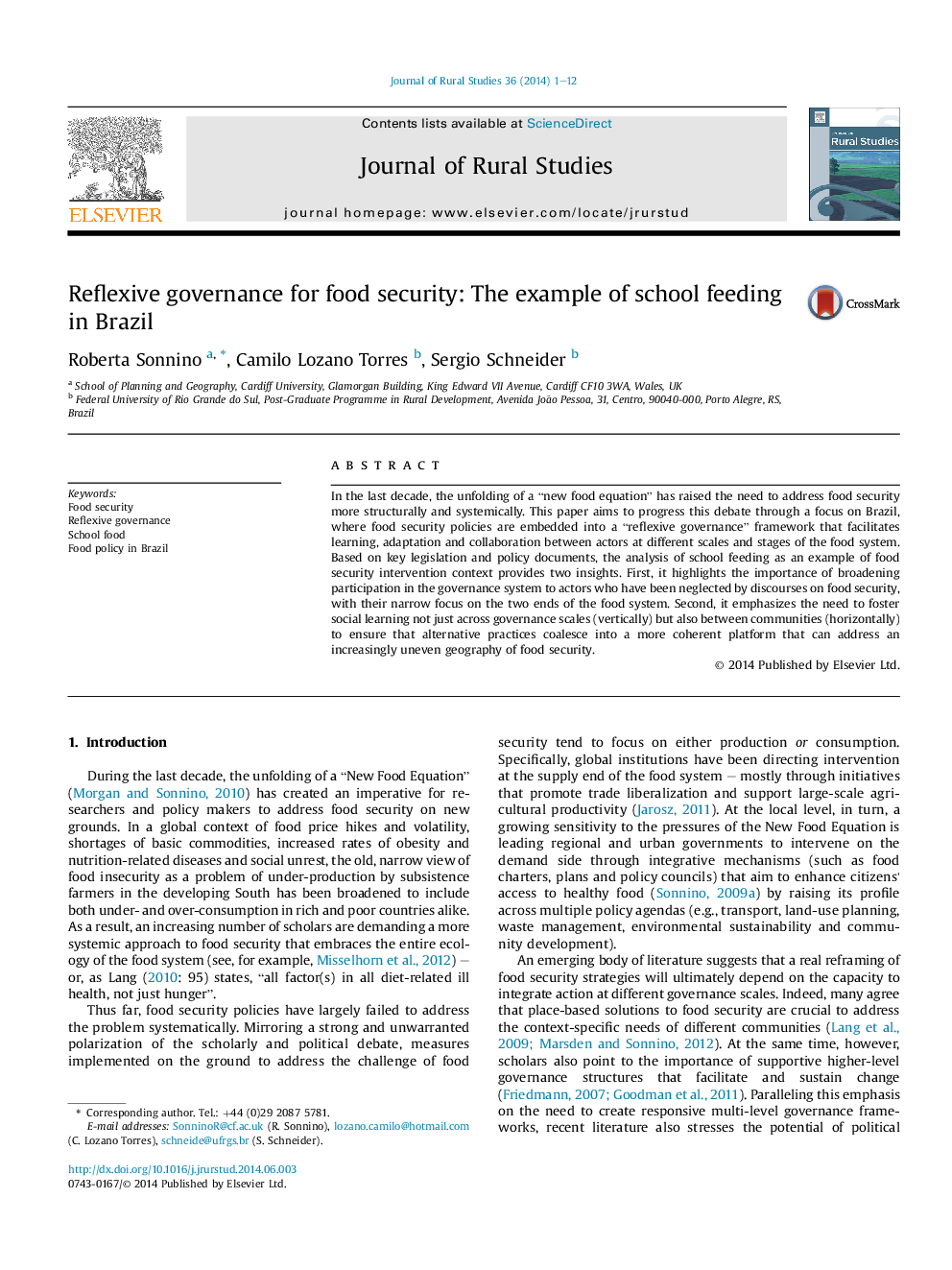| Article ID | Journal | Published Year | Pages | File Type |
|---|---|---|---|---|
| 6545713 | Journal of Rural Studies | 2014 | 12 Pages |
Abstract
In the last decade, the unfolding of a “new food equation” has raised the need to address food security more structurally and systemically. This paper aims to progress this debate through a focus on Brazil, where food security policies are embedded into a “reflexive governance” framework that facilitates learning, adaptation and collaboration between actors at different scales and stages of the food system. Based on key legislation and policy documents, the analysis of school feeding as an example of food security intervention context provides two insights. First, it highlights the importance of broadening participation in the governance system to actors who have been neglected by discourses on food security, with their narrow focus on the two ends of the food system. Second, it emphasizes the need to foster social learning not just across governance scales (vertically) but also between communities (horizontally) to ensure that alternative practices coalesce into a more coherent platform that can address an increasingly uneven geography of food security.
Related Topics
Life Sciences
Agricultural and Biological Sciences
Forestry
Authors
Roberta Sonnino, Camilo Lozano Torres, Sergio Schneider,
